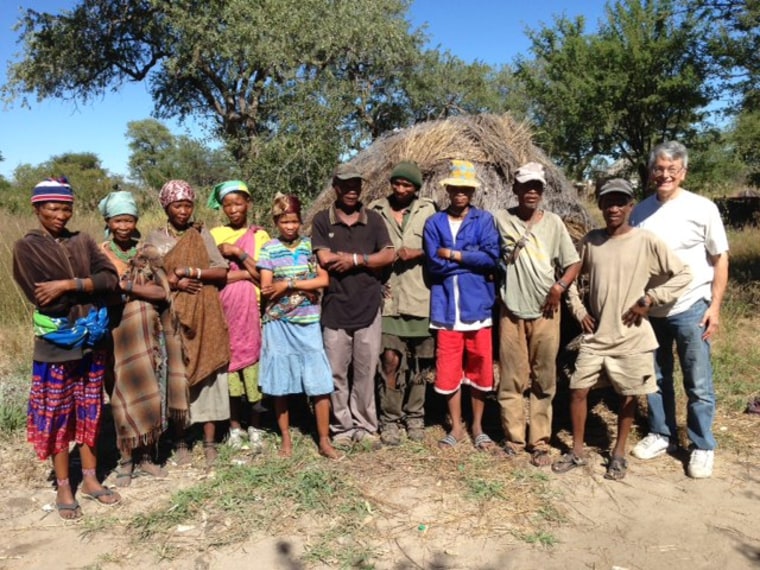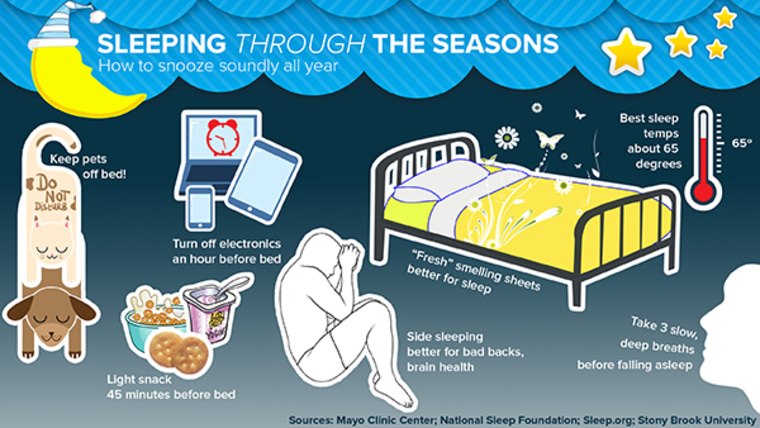Modern life has turned us into sleep-deprived zombies, or so we believe. A new study finds there isn't a "magic number" when it comes to how much sleep we need each night — our prehistoric ancestors probably slept less than most modern humans, but they weren't stressing about insomnia.

“People are told they need certain hours of sleep, that if you don’t get seven hours of sleep you should go to the doctor,” says Jerome Siegel, a professor of psychiatry at UCLA’s Semel Institute of Neuroscience and Human Behavior and an author of the study. “The evidence is that people differ in sleep as they do in height and eye color and there isn’t a magic number.”
For the paper in Cell Biology, Siegel looked at the sleep habits of the Hadza of Tanzania, the San of Namibia, and the Tsimane of Bolivia. These groups live like hunter and gatherers and rarely interact with modern amenities, including electric light, which is considered to be one of the major modern disruptors of sleep. Siegel believed that these tribes provided one of the last opportunities to measure sleep behaviors of people who resembled those from whom we evolved.
For 1,165 days 94 adults wore small watch-like devices that measured their sleep and wake habits, light exposure, body temperature, and outdoor temperature.
On average, people slept 6.4 hours a night during the summer. In the winter, they slept an extra hour. No one took naps. Even with less sleep, most people exhibited signs of good health. They were thin and many experienced long lifespans that reached into their 70s or 80s.
“These three groups all slept less than what you might predict based on the information coming from Western societies … this is very surprising,” says John Peever, professor in the department of cell and systems biology and physiology at the University of Toronto and director of the Centre for Biological Timing and Cognition, who was not involved in the study.
“One possibility is that they live a healthier lifestyle and don’t need a lot of sleep. Perhaps we don’t live a healthy lifestyle and we crave the sleep.”
Only about two percent experienced insomnia, compared to the 20 to 30 percent of Americans who suffer from it. Two of the groups did not even have a word for insomnia. Even when the researchers explained it “they still seemed a little bit confused,” says Siegel.
Keep it cool for better sleep
Despite not being exposed to artificial light, people did not doze off as soon as the sun went down; most people stayed up about 3.3 hours after sunset. They do wake before sunrise, though. This sleep time occurred during the time of night when the temperature consistently dropped.
“They are sleeping through the coldest period of the night,” he says. “Throughout human history sleep occurs … at declining temperatures.”
11 ways to get to sleep faster
While experts recommend that people lower their thermostats at night, modern humans rarely experience sleep at declining temperatures. The temperature remains steady. Siegel believes that exposure to natural temperature might regulate sleep.
“Temperature might be an important environmental cue to when people go to sleep and wake up,” says Peever.
Sleep protects immunity, but how? Scientists may have finally figured it out
While looking at temperature’s impact on sleep might help experts understand what contributes to good sleep, Siegel says the findings dispel the common myth that people need so many hours of sleep or they suffer from a problem.
“Separating myth from fact has real clinical implications.”
